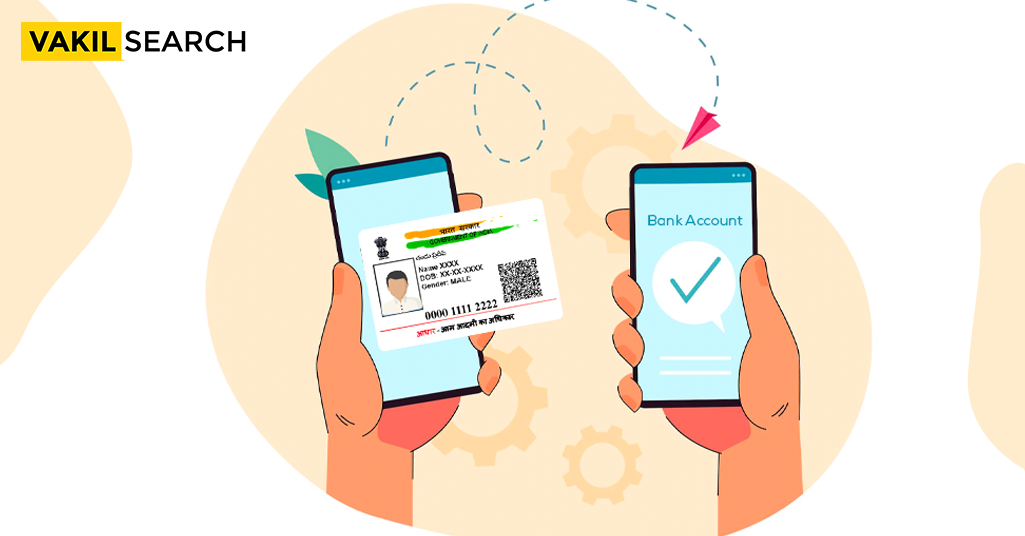In recent years, the Indian government has extended the use and application of the Aadhaar card. For Indians, the document is both a form of identification and a proof of identity. All Indians should register under the Aadhaar scheme, according to the government. Thus, even non-resident Indians with Indian citizenship have been applying for the same. NRIs living outside of India who hold Indian citizenship must register under an Aadhaar card. This is necessary when such NRIs generate income from India and need to pay taxes. However, NRIs from countries, such as Abu Dhabi have been exempted from needing the Aadhaar card for NRIs to file income tax returns. Let us now take a look at how Non-Resident Indians can apply for an Aadhaar Card.
In India, the Aadhaar card enrolment service is free of charge for Indian citizens and foreigners living in India. The Aadhaar Unique Identification Authority of India handles the registration and issue of Aadhaar cards in the country. There is no difference in the registration process, time required, or documents required irrespective of citizenship status. Also, you will have to be physically present to finish the process of registration for an Aadhaar Card For Non Resident Indian. NRIs can use the Aadhaar card as a universal ID proof, which helps with verification during government jobs. Furthermore, the Aadhaar also helps them become eligible for other government schemes, welfare programs and social security projects. To book an appointment for enrolment, individuals may visit their nearest Aadhaar enrolment centre, or book through the UIDAI’s official website.
Can NRIs apply for an Aadhaar Card?
Any individual who holds Indian citizenship or resides in India may apply for an Aadhaar card. Here is a quick look at the various eligibility criteria you need to meet to apply for an Aadhaar card in India.
- Must be above the age of 3 years (Baal Aadhaar Card)
- Must be an Indian resident (Must have lived in India for at least 182 days in the last year)
- Foreigners eligible for enrolment if they meet the residency criteria.
- NRIs may also apply for an Aadhaar card as they are Indian citizens.
What documents do NRIs require to apply for an Aadhaar Card?
To enroll for the Aadhaar Card For Non Resident Indian, NRIs need to have a few necessary IDs and address proof documents. Here’s a quick look at the documents that NRIs require to complete the verification process associated with enrolment.
- Birth Certificate/SSC Certificate
- Photo ID Proof
- School Certificate
- Address Proof of any kind
- Introducer details, in case they do not have the right documents
Along with these basic documents, NRIs will also have to provide specific documents regarding their citizenship and foreign residency. These documents help establish the individual’s relationship with the other country and must be verified by officials of both nations. The competent regulatory bodies or authorities must verify and attest these documents for them to be accepted by the UIDAI.
How can NRIs apply for an Aadhaar Card in India?
After visiting the Aadhaar enrolment centre, the applicants must provide all the required documents. Once the verification of the documents is complete, the applicants will have to provide the executives with their biometric information. The process of obtaining biometric details mainly involves the following steps.
- Fingerprint Scanning: Applicants have to provide fingerprints of all ten of their fingers. Details regarding these prints will be stored in the UIDAI database.
- IRIS Scanning: Once the fingerprint scanning is complete, the next important step towards completing the biometric verification is the scanning of the applicant’s iris. This process also requires the physical presence of the applicant as it may be done only through registered Aadhaar enrolment centres.
- Photograph: After these formalities are over, the government officials will take a live photograph of the applicant. The centre will not allow people to use or provide older pre-scanned photos. The photo taken at the Aadhaar enrolment centre is the one that will appear on the Aadhaar card.
To apply for the Aadhaar Card For Non Resident Indian, get legal assistance from Vakilsearch!
Things to know about Aadhar Card for Non-Resident Indians
Here are few things you should know about Aadhaar Card For Non Resident Indian.
- If you are an NRI with an Aadhaar, your spouse can apply for the Aadhaar using your Aadhaar and passport. However, if he/she is an NRI, then they will have to submit their Indian passport as a proof of identity.
- The children of NRIs can also apply for and obtain an Aadhaar card by using their parents’ details and Aadhaar. In such cases, the child’s Indian passport serves as the primary proof of identity.
- For the Aadhaar enrolment of NRI children, the parents must provide their consent before registration.
- Applicants cannot, as of now, provide their international mobile number for registration for the Aadhaar card.
- You can update the address on the Aadhaar by providing any other document, if it is not updated on your passport.
Conclusion
Thus, you might have now got an idea about the Aadhaar Card For Non Resident Indian. As soon as the details are collected, the information must be processed and stored in the UIDAI database. It usually takes 90 days or three months for the entire process to be completed. UIDAI will send the Aadhaar card to the applicant’s residential address once the verification process is complete. The UIDAI website also allows applicants to track the status of their Aadhaar cards online. Still have doubts, you can contact our team.
Visit Vakilsearch for any NRI legal related services.
Read More:




